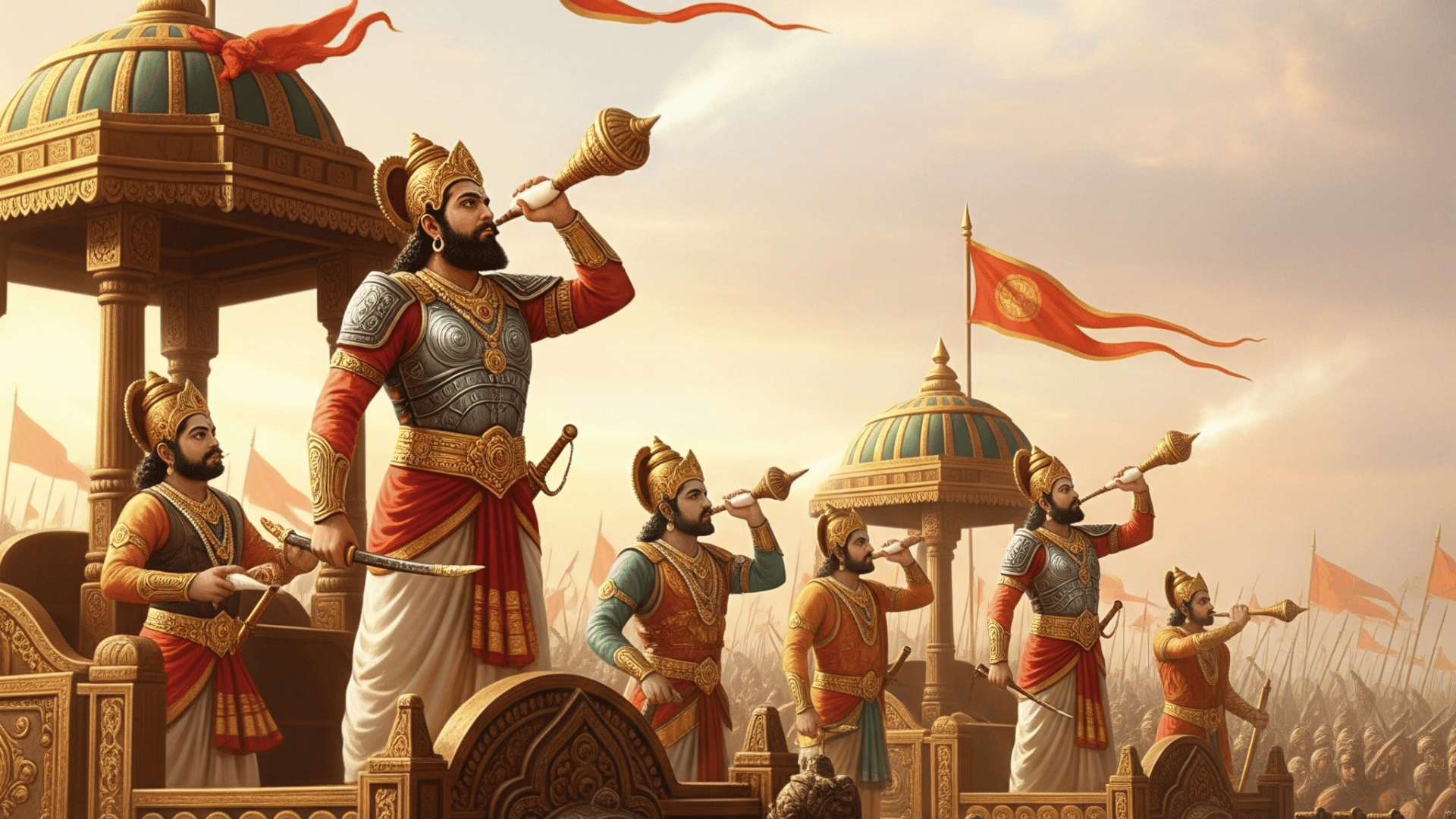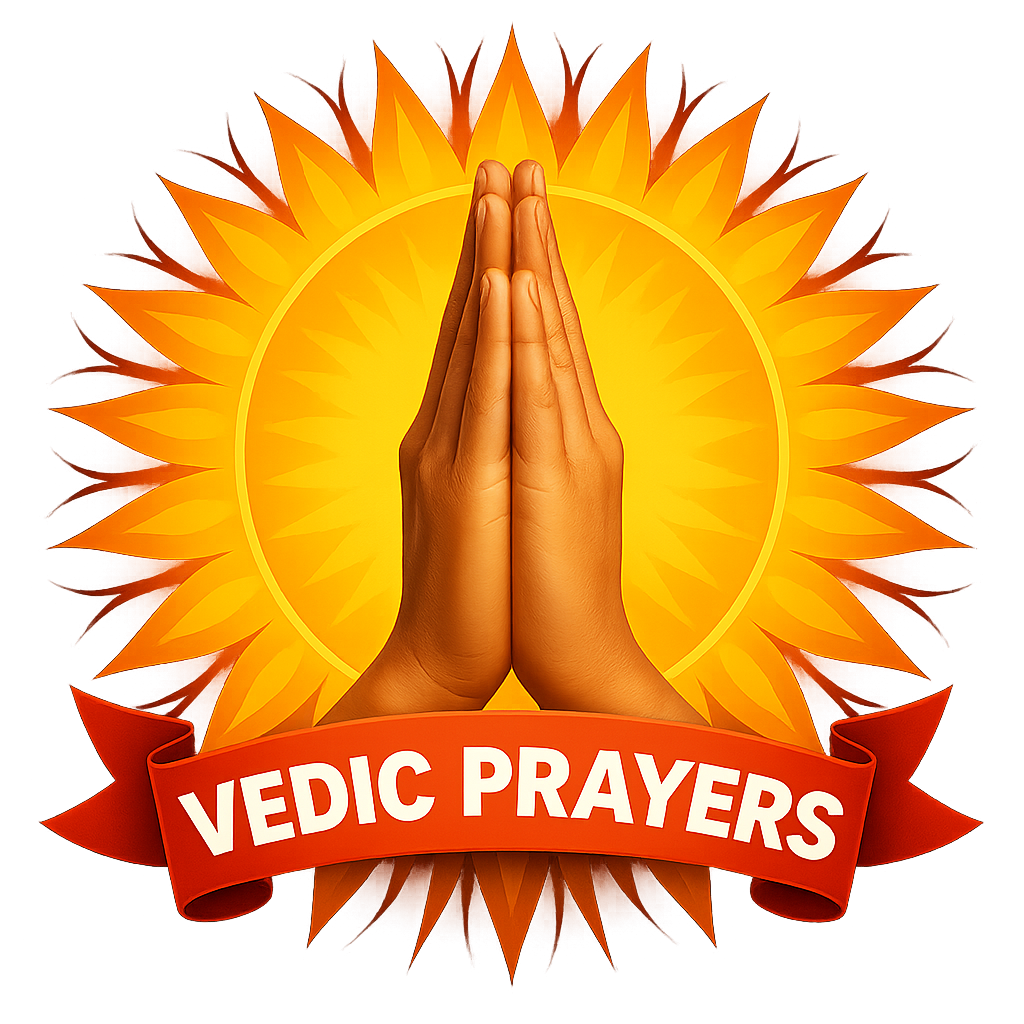
Chapter 1 – Arjuna’s Despondency
Verse 18
DrupadH, DraupadeyaH, ch, sarvashH, prthiveepate,
SaubhadrH, ch, mahabaahuH, shankhaan’, dadhmuH, prthak’, prthak’ ||18||
O ruler of the Earth (Dhritarashtra)! King Drupada, the sons of Draupadi, and the mighty son of Subhadra – Abhimanyu – all blew their conches individually.
Deep Explanation / Elaboration:
In this verse, Sanjaya describes some other important warriors from the Pandava side who were ready for battle and expressed their enthusiasm and bravery by blowing their conches.
King Drupada – He was a king and a great Kshatriya warrior. His blowing of the conch symbolizes the strength of the Pandava army.
Draupadeyas – These are the five sons of Draupadi and the Pandavas (Prativindhya, Sutasoma, Shrutakirti, Shatanika, and Shrutasena). All of them were also participating in the war and blowing their conches, showing that even the next generation of Pandavas was ready for battle.
Saubhadra (Abhimanyu) – The son of Arjuna and Subhadra, a brave and radiant warrior, known for his heroic entry into the Chakravyuha formation in the Mahabharata. The term Mahabahu (mighty-armed) indicates his extraordinary strength and valor.
Blowing of the conch by all these warriors not only marked the beginning of war but also demonstrated their enthusiasm, determination, inner strength, and the organized strategic power of the Pandava army.
Conclusion:
This verse clearly shows that the Pandava army did not consist of the Pandavas alone, but also included their allies, sons, and even the younger generation of warriors, all committed to the battle with full zeal, confidence, and strength. This scene was meant to instill concern and fear in the mind of Dhritarashtra regarding the strength of the Pandava side.
















